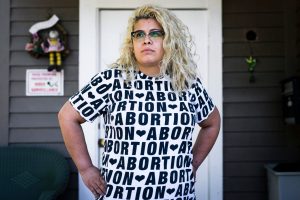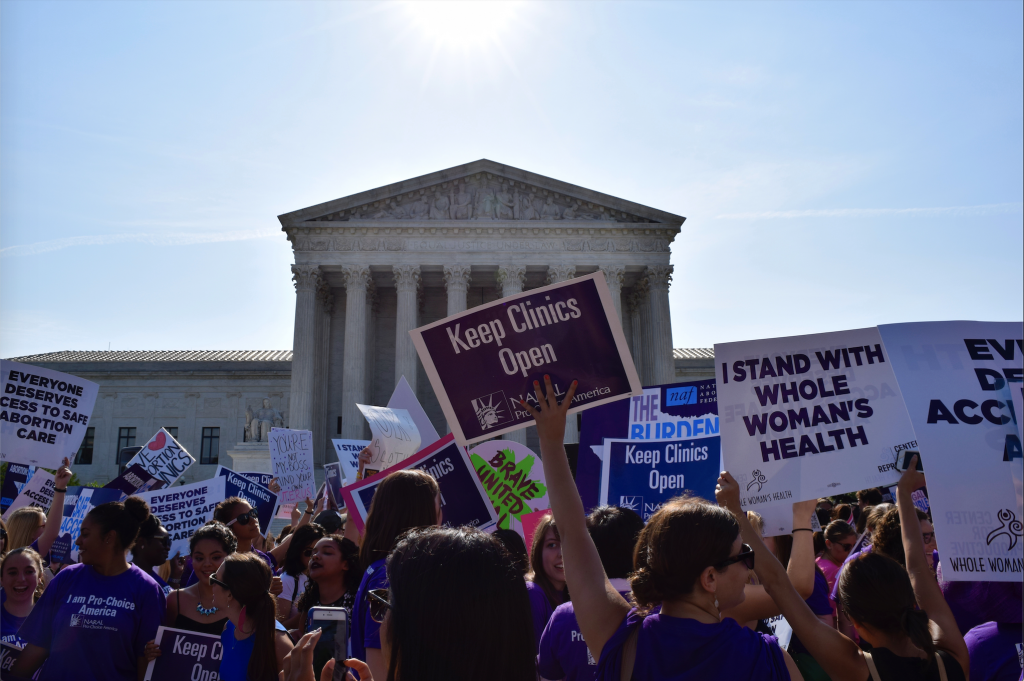Editor’s Note: In the next few articles, we will provide background on the anti-choice legislation that are being passed and proposed so that everyone has some basic information on these laws, and we will report from reproductive justice activists on the impact of these bills, and explore with them the steps forward.
[dropcap]T[/dropcap]he current wave of anti-choice legislation, supported by Trump’s dangerous rhetoric and his appointment of over 95 federal judges, has deep and lingering consequences that go beyond attempts to restrict bodies. The introduced and accepted legislation has serious consequences for access to medicine, voting rights, bodily autonomy and relief from trauma.
Alabama: HB 314: “Human Life Protection Act”
Primary Sponsor: Rep. Terri Collins, 8th District
Impact: This bill, an attempt to regulate and remove bodily autonomy, leveraged calamitous historical events for political gain. HB 314 sets forth a comparison of abortion to the Holocaust, Soviet gulags, the Chinese “Great Leap Forward,” Khmer Rouge’s killings and the Rwandan genocide. It equates a developing, nonviable fetus with the death of millions of people and crimes against humanity: “By comparison, more than 50 million babies have been aborted in the United States since the Roe decision in 1973, more than three times the number who were killed in German death camps, Chinese purges, Stalin’s gulags, Cambodian killing fields, and the Rwandan genocide combined.” This language continues a pattern of the anti-choice movement of engaging in inciteful, emotionally charged language and rhetoric often laden with scientific and medical inaccuracies.

HB 314’s drafters deny the ability of an individual to receive an abortion despite claims that they are “suffering from an emotional condition or a mental illness which will cause [them] to engage in conduct that intends to result in [their] death or the death of [their] unborn child.” The individual must receive permission from a second Alabama-licensed psychologist who finds that the individual suffers from a mental illness that may result in the death of the person before an abortion is allowed to be performed.
Doctors who perform abortions will be charged with a Class A felony, a sentence that carries up to 99 years in prison and strips the individual of voting rights.

Alabama’s law highlights that white women in political leadership positions are often just as eager to restrict bodily autonomy. Rep. Terri Collins, a woman, was the primary sponsor of the law. Gov. Kay Ivey, a woman, signed the ban. Rep. Collins herself claimed that this bill wasn’t necessarily about promoting maternal health or decreasing costs; she claimed it was about “challenging Roe v. Wade and protecting the lives of the unborn.” Rep. Collins explicitly refused to include an exception for rape or incest, saying that the lack of those exceptions was necessary in order to force federal courts to intervene. All of this, despite Alabama having one of the worst maternal and infant outcomes in the country. Alabama’s law has proven its legislators’ pro-fetus stance, and has highlighted that abortion laws are not about maternal or infant health — it’s about control over bodies.
In an interview with Slate, Yellowhammer Fund’s president, Amanda Reyes speaks to the immediate threat these abortion laws have on reproductive justice: “People think abortion advocates are hysterical because we say we’re getting closer to [undoing] Roe v. Wade, but we are. What has happened in Alabama is showing how close we are.”
The ban is set to take effect in six months.





